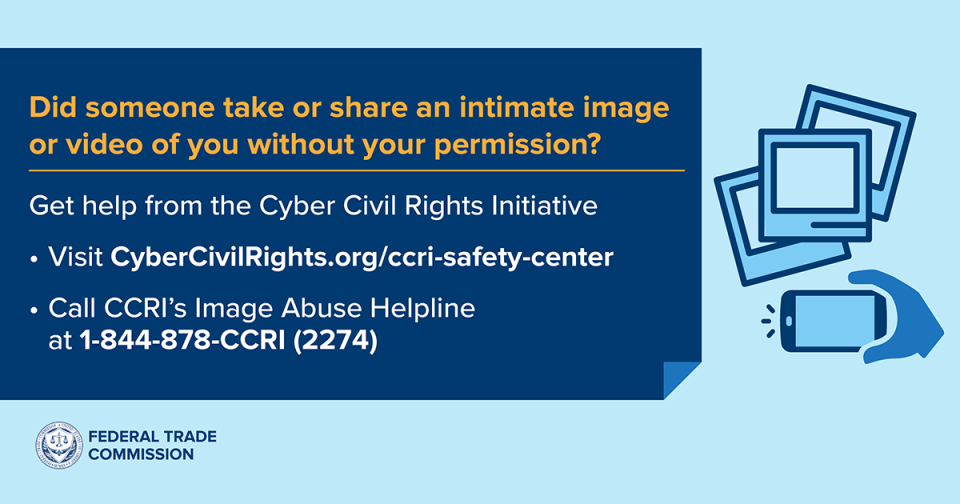What Is the Nonconsensual Distribution of Intimate Images?
The nonconsensual distribution of intimate images (NDII) is when someone takes or shares an intimate image or video of you without your permission. It's also known as image-based sexual abuse, nonconsensual pornography, or revenge porn.
Examples of NDII
- Someone shares intimate images or videos of you without your consent
- Someone shares intimate images or videos of you that were digitally altered to make it look like you’re nude, partially nude, or engaged in sexual conduct
- Someone shares intimate images or videos of you created with artificial intelligence (AI)
There may be laws that make the nonconsensual distribution of intimate images illegal in your state.
What To Do About the Nonconsensual Distribution of Intimate Images
If you believe or know that someone shared an intimate image or video of you, visit the Cyber Civil Rights Initiative’s (CCRI) Safety Center for help deciding what to do. You’ll find
- information about what to do you if you’re concerned for your safety
- links to state laws about the nonconsensual distribution of intimate images
- guidance on documenting the abuse, if you choose
- advice on requesting removal of the images
- recommendations for other ways to get help, including contacting law enforcement
CCRI also has an Image Abuse Helpline at 1-844-878-CCRI (2274).
Report It to the FTC
If someone shared an intimate image or video of you without your permission, in addition to considering the steps above, tell the FTC at ReportFraud.ftc.gov.

